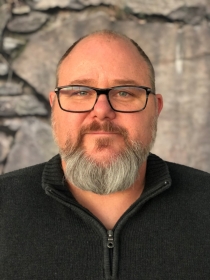Jack R. Friedman, PhD
Senior Research Scientist
Jack Friedman (Ph.D. Duke Univ. 2003) is an anthropologist who works at the intersection of health (medical anthropology), socio-ecological systems (environmental anthropology), political economy (political anthropology), and natural disasters. He has conducted a wide range of research drawing on methods from traditional participant observation to both semi-structured and person centered interviewing techniques to more structured lab-based and field-based behavioral experimentation.
Dr. Friedman’s diverse research portfolio includes multiple NOAA-funded projects that examine how operational meteorologists understand uncertainty and how they can integrate knowledge about vulnerabilities into their communication to emergency managers, the public, and other core partners in order to save lives and property. This on-going research seeks to bridge gaps between the social sciences and the atmospheric sciences, as well as shedding light on the everyday practices of science, the nature of vulnerabilities and political economic injustice, and applied anthropology.
His previous and on-going projects include 1) an ethnography of the changing meaning and experience of being “working class” (including examining the political subjectivity associated with class) in post-socialist Romania, 2) clinical ethnography of mental health care in Romanian psychiatric hospitals, 3) clinical ethnography of public mental health care and the impact of the recovery movement (in mental health care) on the provision of service, outcomes, and the broader culture of mental health clinics in the U.S., 4) comparative ethnographic research into socio-ecological systems including leading the ethnographic portion of NSF OK EPSCoR (2013-2018) (along with Drs. Tony VanWinkle and Michael Stanton) examining communities in four watershed in Oklahoma regarding their interaction with water resources and climate change, as well as 5) environmental anthropology conducted (along with Dr. Stephanie Paladino) along the Rio Grande/Bravo to examine how people understand water resources associated with the river, and to explore the possibilities of “whole river thinking” as a possible solution to water limitations in the region.


